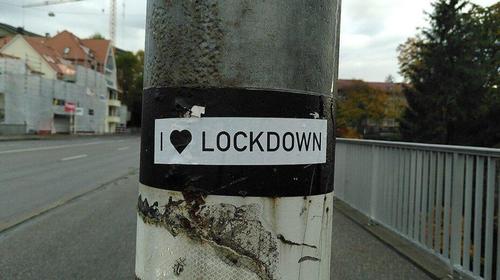Authored by Jonathan Cook via MintPressNews.com,
When I criticize meddling in Syria by Britain and America, or their backing of groups there that elsewhere are considered terrorists, it does not follow that I am, therefore, a cheerleader for the dictatorship of Bashar Assad or that I think that Syrians should be denied a better political system. Similarly, when I criticize Joe Biden or the Democratic party, it does not necessarily follow that I think Donald Trump would have made a better president.
A major goal of critical thinking is to stand outside tribal debates, where people are heavily invested in particular outcomes, and examine the ways debates have been framed. This is important because one of the main ways power expresses itself in our societies is through the construction of official narratives – usually through the billionaire-owned media – and the control and shaping of public debate.
You are being manipulated – propagandized – even before you engage with a topic if you look only at the substance of a debate and not at other issues: such as its timing, why the debate is taking place or why it has been allowed, what is not being mentioned or has been obscured, what is being emphasized, and what is being treated as dangerous or abhorrent.
If you want to be treated like a grown-up, an active and informed participant in your society rather than a blank sheet on which powerful interests are writing their own self-serving narratives, you need to be doing as much critical thinking as possible – and especially on the most important topics of the day.

Learning curve
The opportunity to become more informed and insightful about how debates are being framed, rather than what they are ostensibly about, has never been greater. Over the past decade, social media, even if the window it offered is rapidly shrinking, has allowed large numbers of us to discover for the first time those writers who, through their deeper familiarity with a specific topic and their consequent greater resistance to propaganda, can help us think more critically about all kinds of issues – Russia, Venezuela, Iran, Israel-Palestine, the list is endless.
This has been a steep learning curve for most of us. It has been especially useful in helping us to challenge narratives that vilify “official enemies” of the west or that veil corporate power – which has effectively usurped what was once the more visible and, therefore, accountable political power of western states. In the new, more critical climate, the role of the war industries – bequeathed to us by western colonialism – has become especially visible.
But what has been most disheartening about the past two years of Covid is the rapid reversal of the gains made in critical thinking. Perhaps this should not entirely surprise us. When people are anxious for themselves or their loved ones, when they feel isolated and hopeless, when “normal” has broken down, they are likely to be less ready to think critically.
The battering we have all felt during Covid mirrors the emotional, and psychological assault critical thinking can engender. Thinking critically increases anxiety by uncomfortably exposing us to the often artificial character of official reality. It can leave us feeling isolated and less hopeful, especially when friends and family expect us to be as deeply invested in the substance – the shadow play – of official, tribal debates as they are. And it undermines our sense of what “normal” is by revealing that it is often what is useful to power elites rather than what is beneficial to the public good.
Emotional resilience
There are reasons why people are drawn to critical thinking. Often because they have been exposed in detail to one particular issue that has opened their eyes to wider narrative manipulations on other issues. Because they have the tools and incentives – the education and access to information – to explore some issues more fully. And, perhaps most importantly, because they have the emotional and psychological resilience to cope with stripping away the veneer of official narratives to see the bleaker reality beneath and to grasp the fearsome obstacles to liberating ourselves from the corrupt elites that rule over us and are pushing us towards ecocidal oblivion.
The anxieties produced by critical thinking, the sense of isolation, and the collapse of “normal” is in one sense chosen. They are self-inflicted. We choose to do critical thinking because we feel capable of coping with what it brings to light. But Covid is different. Our exposure to Covid, unlike critical thinking, has been entirely outside our control. And worse, it has deepened our emotional and psychological insecurities. To do critical thinking in a time of Covid – and most especially about Covid – is to add a big extra layer of anxiety, isolation, and hopelessness.
Covid has highlighted the difficulties of being insecure and vulnerable, thereby underscoring why critical thinking, even in good times, is so difficult. When we are anxious and isolated, we want quick, reassuring solutions, and we want someone to blame. We want authority figures to trust and act in our name.
Complex thinking
It is not hard to understand why the magic bullet of vaccines – to the exclusion of all else – has been so fervently grasped during the pandemic. Exclusive reliance on vaccines has been a great way for our corrupt, incompetent governments to show they know what they are doing. The vaccines have been an ideal way for corrupt medical-industrial corporations – including the biggest offender, Pfizer – to launder their images and make us all feel indebted to them after so many earlier scandals like Oxycontin. And, of course, the vaccines have been a comfort blanket to us, the public, promising to bring ZeroCovid (false), to provide long-term immunity (false), and to end transmission (false).
Continue Reading: zerohedge.com





Leave a Reply